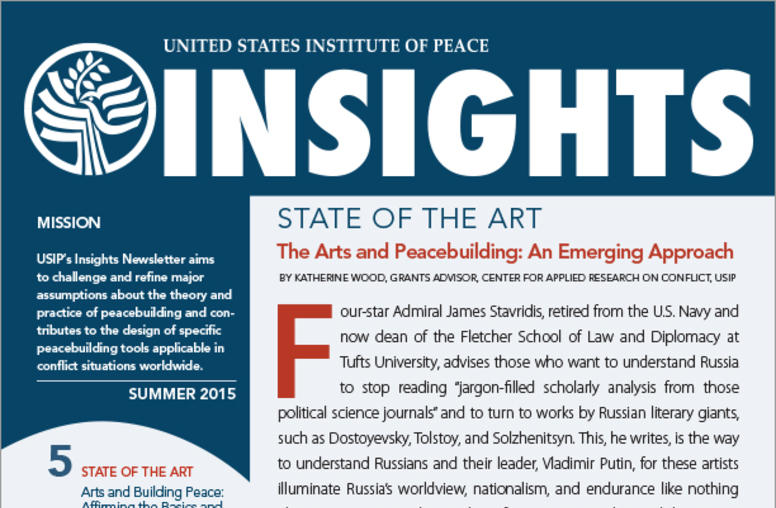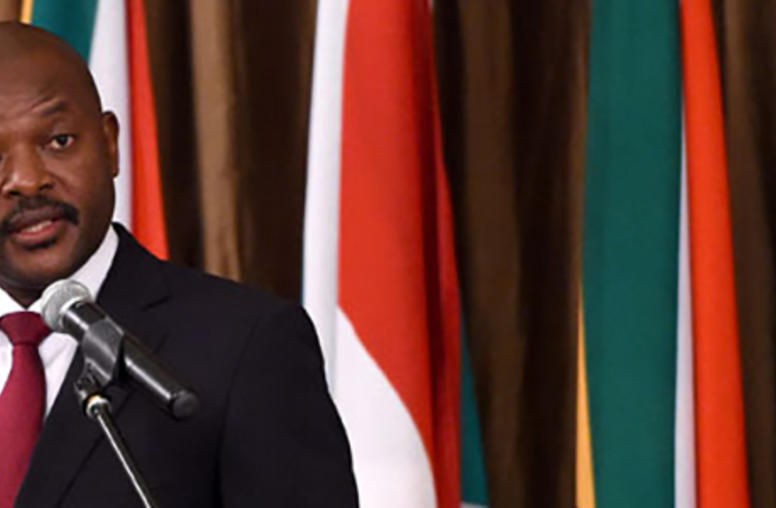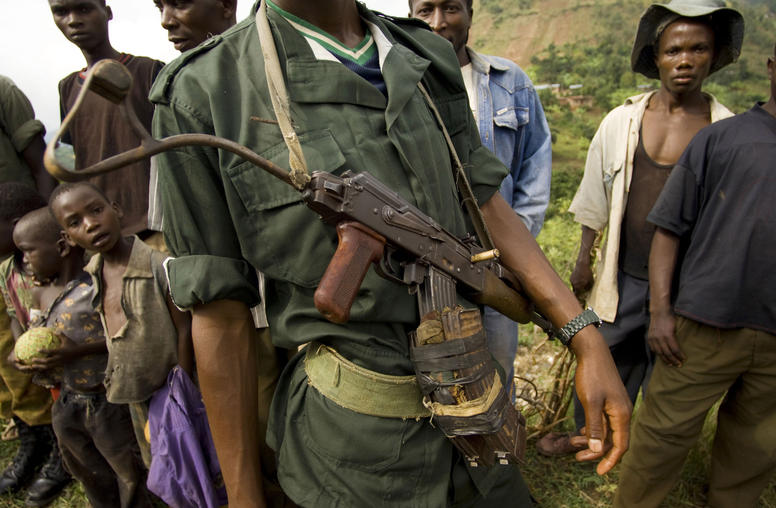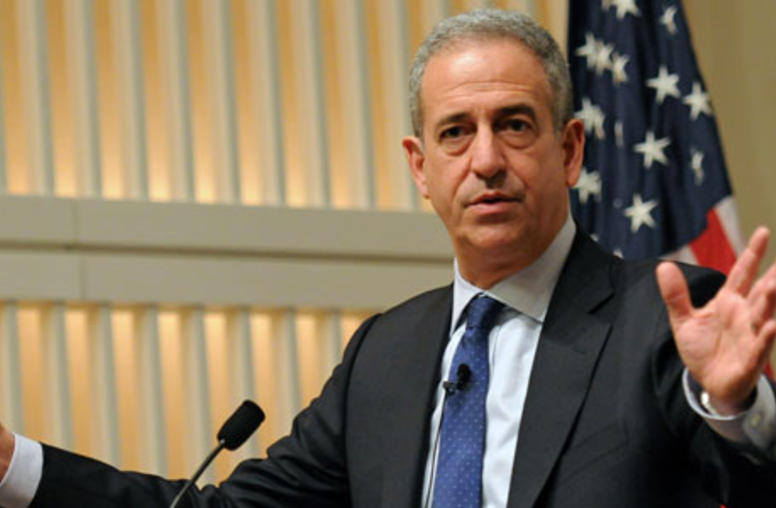Commission of Inquiry: Burundi
Commission of Inquiry: International Commission of Inquiry for Burundi
Duration: 1995 - 1996
Charter: UN Security Council Resolution S/RES/1012
Commissioners: 5
Report: Public report
Commission of Inquiry: International Commission of Inquiry for Burundi (Commission d'Enquête Internationale sur les violations des droits de l'homme au Burundi depuis le 21 octobre 1993)
Dates of Operation: September 1995 – July 1996 (10 months)
Background: From its independence in 1962 until the elections of 1993, Burundi was controlled by a series of military dictators belonging to the Tutsi community, who ruled over a significant Hutu majority population. A struggle between Hutu and Tutsi political elites over land and power fueled ethnic conflict throughout Burundi’s post-independence history, with widespread violence and ethnic cleansing occurring in 1965, 1972, 1988, and 1993-2003.
In 1993, Melchior Ndadaye became Burundi's first elected President and also the first Hutu leader of the country. He was assassinated by a group of Tutsi army officers only a few months later. The country then slid into violence as Hutu peasants spontaneously rose up and massacred Tutsi while the Tutsi army rounded up and killed thousands of Hutu. The Rwandan genocide in 1994 sparked additional massacres of Tutsis in Burundi. The UN Security Council set up a commission in 1995 to investigate the killings.
Charter: UN Security Council Resolution S/RES/1012 (1995), (PDF-88 KB) August 28, 1995
Mandate: The Commission of Inquiry was ordered to investigate the assassination of former president Melchior Ndadaye on October 21, 1993 as well as massacres and “other related serious acts of violence” committed after October 21, 1993. Based on its findings, it was to recommend measures to pursue justice, end impunity and promote national reconciliation.
Commissioners and Structure: Five international commissioners, all men, chaired by Edilbert Razafinderalambo from Madagascar. The commissioners were selected by the UN Secretary-General.
Report: The commission’s final report (PDF-774 KB) was submitted to the UN Secretary-General on June 7, 2002.
Findings:
Conclusions
- The commission heard 667 witnesses and concluded that acts of genocide against the Tutsi minority took place in Burundi after October 21, 1993 – the day President Ndadaye was assassinated. Some members of the Front for Democracy in Burundi (FRODEBU) were found responsible, and leaders as high as the commune level were involved.
- Indiscriminate killing of Hutus was carried out by members of the Burundian Army and Gendarmerie, and by Tutsi civilians. No effort was made by the military authorities at any level to prevent, investigate or punish such acts.
Recommendations
- The commission claimed it could not identify perpetrators by name and stated that security must be established before legal and other reforms could be implemented in a sustainable way.
- The ethnic balance in the judiciary and police must be more representative of the Hutu majority.
- International jurisdiction applied to acts of genocide and other international crimes in Burundi, and investigations should not have been limited to acts committed in October 1993.
Subsequent Developments:
Prosecutions
- In 2000, 13 of the 19 parties involved in peace talks signed the Arusha Peace and Reconciliation Agreement for Burundi. The UN Security Council sent an assessment team in 2004 and approved the recommendation of the assessment team to establish a new truth commission as well as a hybrid court to "prosecute those bearing the greatest responsibility for genocide, crimes against humanity and war crimes". Long negotiations between the UN and the government of Burundi led to an agreement on the mandate of a tripartite steering committee (UN, government, and civil society) to lead national consultations on transitional justice. They had planned to start in November 2007. As of early 2009, national consultations have not yet begun and the UN and the government have not resumed negotiations.
- Organic Law No. 100/92 of November 7, 2005 implements the Arusha Agreement within the Burundian legal system. It grants “provisional immunities” to a broad category of belligerents from prosecution. Civil society groups lodged a complaint before the Constitutional Court. The definition of “provisional immunity” and what crimes they cover is unclear.
Special Notes: The records of the Commission were given to the Secretary-General of the UN.
Sources:
Amnesty International. Burundi: La Commission Des Nations Unies Qui Enquête Sur Les Atteintes Aux Droits De l'Homme a Besoin De Ressources 1996. Available at http://www.amnesty.org/en/library/asset/AFR16/004/1996/en/9cac9bec-eb0e-11dd-aad1-ed57e7e5470b/afr16004996fr.pdf (accessed June 20, 2008).
Center for the Study of Violence and Reconciliation. "Justice in Perspective - Truth and Justice Commission, Africa - Burundi." Center for the Study of Violence and Reconciliation. Available at http://www.justiceinperspective.org.za/index.php?option=com_content&task=view&id=6&Itemid=19 (accessed June 20, 2008).
Hayner, Priscilla B. "Fifteen Truth Commissions-1974 to 1994: A Comparative Study." Human Rights Quarterly. 16, no. 4 (1994).
International Center for Transitional Justice. Burundi: Submission to the Universal Periodic Review of the UN Human Rights Council Third Session December 1-12, 2008, July 14, 2008. Available at http://ictj.org/publication/burundi-submission-universal-periodic-review (accessed May 12, 2011).



